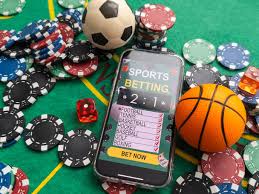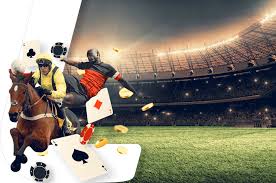
How to Maximize Your Poker Game
If you’re looking to enhance your poker performance, you’re in the right place. In this article, we will delve into various strategies and techniques that can help you improve your game significantly. One smart move is to learn and implement professional practices, such as those you can find on How to maximize your poker betinexchange. Following these guidelines can lead to more successful outcomes at the poker table.
Understanding the Basics
Before diving deeper into advanced strategies, it’s crucial to have a strong grasp of the basics of poker. This includes understanding the hand rankings, betting structures, and game formats. Familiarizing yourself with the rules of the specific variant you want to play, whether it’s Texas Hold’em, Omaha, or Seven Card Stud, is vital to get started on the right foot.
Bankroll Management
One of the most important aspects of maximizing your poker game is effective bankroll management. This means managing your poker funds wisely to extend your playing time and decrease the risk of going broke. Here are some basic rules you should consider:
- Set a budget: Decide how much money you can afford to lose without it affecting your daily life. Stick to this budget strictly.
- Choose the right stakes: Play at stakes where you are comfortable and can maintain a healthy bankroll. A common guideline is to have at least 20-30 buy-ins for the limit you are playing.
- Avoid chasing losses: It’s easy to try and recover losses by playing at higher stakes, but this often leads to more significant losses. Be disciplined and stick to your plan.
Understanding Odds and Probabilities
Being successful in poker is largely about making the right decisions based on odds. The ability to calculate pot odds, implied odds, and outs can significantly affect your game. Here’s a quick breakdown of these concepts:
- Pot Odds: This is the ratio of the current size of the pot to the size of the bet you must call. It helps you determine if a call is profitable based on your chances of completing your hand.
- Implied Odds: These consider not only the current pot size but also the potential future bets you can win if the hand goes your way.
- Outs: These are the cards that will improve your hand. Knowing how many outs you have can help you make informed decisions based on your odds of hitting those cards.
The Importance of Position
Your position at the table is a critical factor in poker strategy. The more players act before you, the less information you have about their hands. This is why understanding and utilizing position is vital:

- Early Position: In early position, you should play tighter and more selectively, as many players still need to make their moves.
- Late Position: Being in a late position allows you to see how your opponents act before you make your decision, giving you an edge to play a wider range of hands.
- Blind Position: When in the blinds, carefully consider your options based on the action before you. Defending with the right hands is crucial here.
Reading Opponents
Being able to read your opponents effectively can give you a significant edge in poker. There are several factors to take into account:
- Tells: Look for physical or behavioral cues that might indicate the strength of their hand. This can include body language, betting patterns, and time taken to make decisions.
- Player Types: Understand whether your opponents are tight, loose, aggressive, or passive, and adjust your strategy accordingly.
- Table Dynamics: Observe how players interact with each other, as this can inform you about their tendencies and potential strategies.
Psychological Factors
Your mental state can greatly impact your performance at the poker table. Maintaining focus, managing emotions, and avoiding tilt (emotional frustration) are essential:
- Stay Calm: Keep your emotions in check, regardless of whether you’re winning or losing. Making decisions based on emotions can lead to costly mistakes.
- Confidence Boost: A positive mindset can enhance your play, so find ways to keep motivated and confident, such as reviewing your successes or visualizing victories.
- Recognize Tilt: If you notice yourself getting frustrated, take a break or step away from the table until you feel more focused.
Practicing Regularly
Finally, the most effective way to maximize your poker skills is through practice. Engage in various forms of practice, including:
- Play Regularly: The more you play, the more experience you’ll gain, leading to better decision-making skills over time.
- Study Strategy: Read books, watch videos, and participate in forums to understand different strategies and receiving feedback on your play.
- Join Poker Communities: Interacting with other poker players can provide insights, tips, and different perspectives that will aid your development.
Conclusion
Maximizing your poker game is an ongoing journey that combines skill, strategy, and psychological endurance. By adopting effective bankroll management, understanding odds, reading opponents, and practicing regularly, you’ll be well on your way to elevating your game. Remember that there is no substitute for experience and learning; always strive to improve and enjoy the process of becoming a better player.


